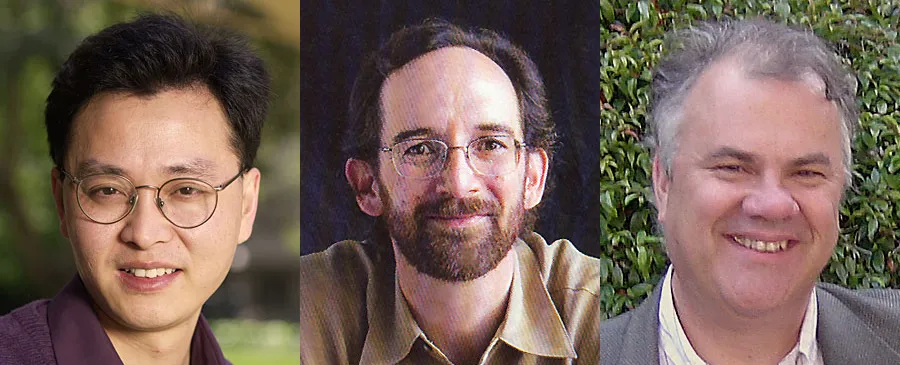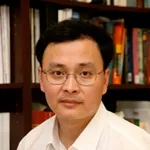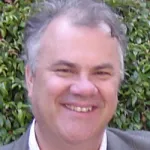
Stanford Report - April 20th, 2009
The American Academy of Arts and Sciences, one of the country's oldest honorary learned societies, announced Monday the election of 210 new fellows, including 11 Stanford faculty members and a consulting professor, and 19 new foreign honorary members.
With the election of this year's class, the number of living fellows of the academy in the Stanford community is 254. The newly elected fellows from Stanford follow:
Hongjie Dai, the J. G. Jackson and C. J. Wood Professor in Chemistry, draws on chemistry, physics, materials science and biological and medical science in his work. His research focuses on solid-state and soft biological materials. Dai has explored using single-walled carbon nanotubes as delivery vehicles for cancer chemotherapy, successfully increasing the proportion of medication entering tumor cells. That makes a given dose of medication both more effective at killing tumor cells and less likely to cause side effects in normal tissue. Recently, he published work on producing large quantities of uniform graphene nanoribbons more quickly and easily than could be done previously, by slicing open carbon nanotubes. Graphene is a form of carbon derived from graphite. Dai also has explored using graphene nanoribbons in "field effect transistors"—a critical component of computer chips—that can operate at room temperature rather than at extremely cold temperatures, as other graphene transistors require.
Deborah Hensler, the Judge John W. Ford Professor in Dispute Resolution and associate dean for graduate studies at the Law School, is a political scientist and public policy analyst who was the director of the RAND Corporation's Institute for Civil Justice before joining Stanford in 1998. Hensler's empirical research on dispute resolution, complex litigation and mass tort liability has won national recognition. She has testified before state and federal legislatures on issues ranging from alternative dispute resolution to asbestos litigation and mass torts, and consulted with judges and lawyers outside of the United States on the design of class action regimes. Hensler is a fellow of the American Academy of Political and Social Science, serves on the board of overseers for the RAND Institute for Civil Justice and was the director of the Stanford Center on Conflict and Negotiation from 1998 to 2003.
Matthew Jackson, the William D. Eberle Professor in Economics, began teaching at Stanford in 2006. He focuses on the dynamics and quantitative studies of human behavior, as well as social and economic networks, game theory, voting and social choice theory, and war and conflict. He is vice chair of the Economics Department and director of the Stanford Institute in Theoretical Economics and wrote Social and Economic Networks, which synthesizes the literatures on the subject and is a resource for researchers and a text for graduate courses. Jackson is also an external professor at the Santa Fe Institute and coordinates the NSF-CEME Decentralization Conference Series. He won the Outstanding Teaching Award from the Stanford Graduate Economics Association in 2008 and the Arrow Prize for Senior Economists in 2007.
Aharon Kapitulnik is a professor of physics and applied physics. His interests at the Geballe Laboratory for Advanced Materials include condensed matter physics, the physics of low-dimensional systems, disordered and strongly correlated electron systems, superconductivity, magnetism and the measurement of gravity at small distances. His research attempts to learn if gravity at short distances deviates from Newton's laws. A deviation could be evidence for either compact extra dimensions or subatomic particles as yet unseen. Kapitulnik received his bachelor's and doctoral degrees from Tel Aviv University. He has been a fellow at the Weizmann Institute and a researcher at the Institute for Theoretical Physics at the University of California-Santa Barbara. He joined the Stanford faculty in 1985. He is a fellow of the American Physical Society and was a Presidential Young Investigator.
Mark Krasnow is professor and chair of the Department of Biochemistry, and is also a Howard Hughes Medical Institute investigator. Krasnow earned his MD and PhD from the University of Chicago. He came to Stanford's Medical School in 1985 as a postdoctoral fellow in the lab of David Hogness, where he explored the biochemical basis of development. Three years later he joined the faculty. The focus of Krasnow's current research is what he calls the "molecular logic" of how the trachea develops in a fruit fly and how the lung forms in a mouse. The work has implications for nearly every organ in the body, because most organs are a variation of branched networks of tubes, like the trachea is. His lab's work is rare in that while some labs are examining the fruit fly and others are working with mouse models, Krasnow's team works with both. The dual paths have helped his team use insights from the relatively simple fruit-fly tracheal system to understand the more complex process involved in the formation of the mouse lung.
Jon Alexander Krosnick, the Frederic O. Glover Professor in Humanities and Social Sciences, is a professor of communication and of political science. He has spent more than a decade conducting surveys on the American public's views of global warming. He arrived at Stanford in 2004 and has taught courses on survey methodology around the world at universities and for corporations and government agencies. Krosnick's research focuses on attitude formation; change effects; the psychology of political behavior; the optimal design of questionnaires used for laboratory experiments and surveys; and survey research methodology. Krosnick has received the Phillip Brickman Memorial Prize for Research in Social Psychology, the American Association for Public Opinion Research Student Paper Award and the Midwest Political Science Association's Pi Sigma Alpha Award, among other honors.
W. James Nelson is the Rudy J. and Daphne Donohue Munzer Professor and a professor of molecular and cellular physiology. He was educated in the United Kingdom and received degrees in genetics, cell biology and radiation biology. His postdoctoral work was conducted at the Max Planck Institute for Cell Biology in Germany and at the California Institute of Technology. Nelson was a faculty member at the Institute for Cancer Research at Fox Chase Cancer Center for five years and in 1990 joined the Stanford faculty. His research focuses on the mechanisms involved in the development and maintenance of epithelial cells, which line many of the body's organs. Cells organize proteins so that some molecules are primarily located at one end, which is known as polarity. Nelson's studies indicate that the development of polarity in epithelial cells is a multistage process requiring instructive extracellular cues and the reorganization of proteins.
Norman Nie joined the faculty in 1998 to establish the Stanford Institute for the Quantitative Study of Society. A research professor of political science, Nie is nationally recognized in the fields of survey research, quantitative social science and political behavior. In 1976, he won the Woodrow Wilson award for the best book published in political science for The Changing American Voter. He won the award again 20 years later after publication of Education and Democratic Citizenship in America. In 2006, he received the Lifetime Achievement Award from the American Association for Public Opinion Research. Nie is highly regarded within the information technology industry as the co-founder of SPSS, and served as the company's president and chief executive officer. Under his leadership, SPSS Inc. became one of the country's leading software companies dedicated to the widespread use of statistics.
Stuart S. P. Parkin is a consulting professor of applied physics and director of the IBM-Stanford Spintronic Science and Applications Center, founded in 2004. "Spintronics," short for "spin electronics," refers to devices that take advantage of the quantum property of electrons called "spin." Understanding of spin-polarized electrical current has made possible new classes of spin-based electronic devices. Parkin has played a key role in vastly increasing the memory capacity of computers. He received his bachelor's and doctoral degrees from the University of Cambridge and joined IBM as a postdoctoral fellow in 1982. He is a fellow of the Royal Society, the American Physical Society, the Institute of Physics (London), the Institute of Electrical and Electronics Engineers and the American Association for the Advancement of Science.
Deborah Rhode, the Ernest W. McFarland Professor of Law, is a widely acclaimed scholar in the fields of legal ethics and gender, law and public policy. She is the author of 20 books, including Women and Leadership and Moral Leadership, and is the director of the Stanford Center on the Legal Profession. A clerk for Supreme Court Justice Thurgood Marshall before joining the Law School faculty, Rhode is the former president of the Association of American Law Schools, the former chair of the American Bar Association's Commission on Women in the Profession, the founder and former director of Stanford's Center on Ethics and the former director of the Michelle R. Clayman Institute for Gender Research. She served as senior counsel to the minority members of the U.S. House Committee on the Judiciary on presidential impeachment issues during the Clinton administration. She has received the American Bar Association's Michael Franck Award for contributions to the field of professional responsibility, the American Bar Foundation's W. M. Keck Foundation Award for distinguished scholarship on legal ethics and the American Bar Association's Pro Bono Publico Award for her work on expanding public service opportunities in law schools.
Jennifer Widom, the Fletcher Jones Professor of Computer Science and professor of electrical engineering, is chair of the Computer Science Department. Her expertise lies in the design of complex databases, including databases in which the quality of the data is uncertain. Research in her lab involves query processing on data streams, data caching and replication, combining databases and the web, data transformations and warehousing, and temporal database systems. She earned her master's and doctoral degrees from Cornell University. A trumpet player, her bachelor's degree from Indiana University was in music. Before joining the Stanford faculty in 1993, Widom was a research staff member at the IBM Almaden Research Center. She is a member of the National Academy of Engineering and a fellow of the Association for Computing Machinery. In 2007 she won the ACM SIGMOD Edgar F. Codd Innovations Award. She was a Guggenheim Foundation fellow in 2000-01.
Tobias Wolff, the Ward W. and Priscilla B. Woods Professor, is a faculty member in the Department of English. He is the author of four acclaimed story collections, a novella, a novel and two memoirs. His honors include the PEN/Malamud Award and the Rea Award (both for excellence in the short story), the Los Angeles Times Book Prize and the PEN/Faulkner Award. In March, he was named this year's winner of the Story Prize, which carries a $20,000 award—the largest first-prize amount of any annual U.S. book award for fiction. One of his memoirs, This Boy's Life, was adapted as a 1993 film starring Leonardo DiCaprio, Robert De Niro and Ellen Barkin. His short story "Bullet in the Brain" was adapted into a 2001 short film.



